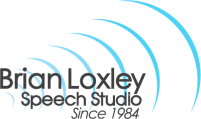[Click here for an audio version of this post]
Do people say you speak too fast? Maybe that’s not the problem after all!
One of the chief complaints I hear from people who come to the Speech Studio is
“Everyone tells me that I speak too fast”
I often say to these people: “You SHOULD speak fast!”
And the reason for this is that we THINK in images, which occur very fast, and so speech itself is a very slow medium in comparison to the speed at which we think. Therefore, it’s good to speak fast. And this is especially true if you’re in New York or if you’re in business where things often happen very fast.
Fast talkers are often told to slow way down and pause often. But one of the WORST things you can do is to slow down, speak very slowly, and separate each word. If you do this, you run the risk of sounding very boring—and perhaps not very intelligent.
When a person tells me they speak too fast, I often find that this is the least of their problems and that there are 16 other things that need to be addressed, and chief among these is CLARITY. In other words when you speak fast, you need to be clear. And the faster you speak, the clearer you need to be.
We also need to VARY the rate, or speed, at which we speak—now fast—now slow—now fast again—in order to have vocal variety and hold the attention of our listeners. It is also a good idea to speak more slowly for emphasis and faster for everything else. For example, if I say “I’m going home,” the words “I’m going” can be said very fast, while the one-syllable word “home” can be drawn out and said slowly because it is emphasized, and it may take longer to say this one-syllable word than the other three syllables combined.
In a much longer sentence we can subordinate an entire dependant clause:
“David and KEVIN, who have known each other since they were in first grade together many years ago, just signed a CONRACT for five million DOLLARS.” Here, the relative clause “who have known each other since they were in first grade together many years ago” can be said at a very fast rate—especially in comparison to the words Kevin, contract, and dollars.
Finally, it is important to match the overall rate of your speech to your specific thoughts and images. Some things by their very nature are slow while other things occur very fast. For example, if you were to say: “Last Sunday afternoon, I was walking along the beach near the ocean, and I could feel the warmth of the sun on my back. I dug my toes down into the sand and could feel the waves lapping at my ankles,” you may want to speak slowly to luxuriate in the images and sensory impressions and to communicate these to your listener.
On the other hand, you may want to speak much faster when describing a scene such as this:
“I was at 42nd Street and Madison the other day, when all of a sudden a man came running out of the bank waving a gun in the air. Two policemen ran out of the bank after him with their guns drawn and chased him down 42nd Street all the way to Fifth Avenue.”
You would speak quickly here because the events happened quickly. Even a word such as “chased” must be said fast—just like the word “fast” itself must be said fast.
But now—just for the fun of it—let’s see what happens when you reverse the rates at which you speak when describing these two events, speaking very fast in describing the scene at the beach:
“Last Sunday afternoon, I was walking along the beach near the ocean and could feel the warmth of the sun on my back. I dug my toes down into the sand and could feel the waves lapping at my ankles.” What sort of impression does this make?
And on the other hand, try speaking very, very, very slowly while describing the bank robbery:
“I was at 42nd and Madison the other day, when all of a sudden a man ran out of the bank waving a gun in the air. Two policemen ran out of the bank after him with their guns drawn and chased him down 42nd Street all the way to Fifth Avenue.”
As Shakespeare said: “suit the action to the word, the word to the action.” And “action” includes not only gestures but also the rate at which you speak. So speak as fast as you want to but always remember to be extremely CLEAR when you speak. And that’s another story.
So stay tuned for another edition of Inside the Speech Studio.
